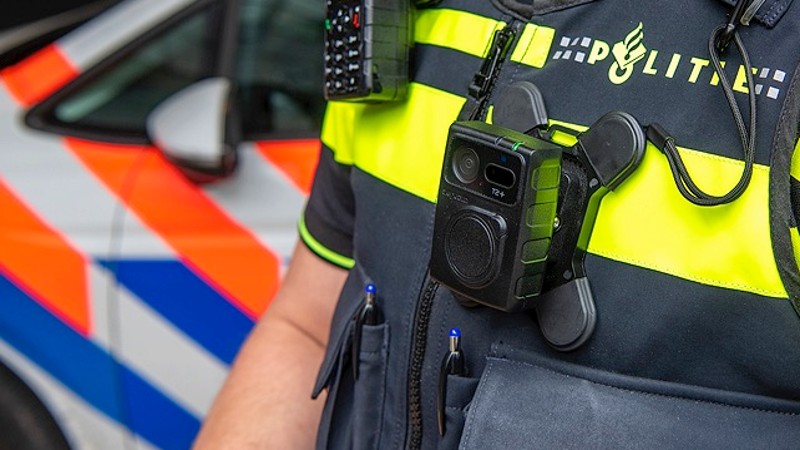Want to read in Dutch? Click here
The Dutch police have been working on it for years now: the bodycam. These small video cameras are placed on top of the uniform and can be turned on to capture images and sound when needed. And as we have seen in recent events, this is a necessity. The riots which have recently taken place in various cities show the importance of this technology when it comes to arresting perpetrators. Not every police officer wears a bodycam. But that will soon change.

Comments
It sounds so simple: you turn on a camera and you have your evidence. But it’s not that simple. There are important issues to consider such as privacy, behavior, and legislation.
An agent may make recordings, after which they are to be stored in a secure environment. But the creator of the images cannot download these videos and simply use them in a case. Before they can make the images public, permission must be given by the investigation management, the competent authority, and the communication department. And the rules of the Bodycams Commitment Framework for operational use must be followed. This twenty-page manual describes when, how, and under what circumstances the images may be used. For example, the cameras may only be turned on in public places. Recording in private homes is not allowed unless there is an emergency or someone is caught red-handed.
Incidentally, the rules surrounding the use of the camera are not only to protect civilians but also the officers themselves. In 2017, when the cams were tested, there was a lot of resistance amongst agents. They were afraid that their employer would use the cameras to keep an eye on them.
After years of testing, they have found that the use of bodycams can have a positive effect, and using cameras increases an officer’s sense of security. Because an agent must state that he or she is recording a conversation, people tend to restrain themselves, thus avoiding escalations. And that is ultimately better for both parties.
As of this year, all police units will have a bodycam
Previously, police districts were free to choose whether or not to use a bodycam. But because of the overwhelmingly positive experiences, it has been decided to implement this nationally. It is expected that all units will be equipped with a bodycam by mid-year. In total, two thousand body cams, especially amongst basic teams, dog handlers, bikers, and nautical police (police on the water).
Besides the police, more and more enforcement officials are using bodycams. Beyond national borders, they are also a popular tool for increasing safety on the street. A few days ago, the Belgian police announced they will purchase 2,900 body cams. The Swiss police have also decided this week to introduce body cams.
Now that the police have called for the sharing of video images of perpetrators of violence, the need for visual material seems paramount. The recent riots are no reason to rush the rollout of the bodycams, the spokesman for the Netherlands Police said. Because this is a tender, we must follow the rules. So we still have a while to wait. Until then, let’s hope that the violence on the streets decreases to the point where body cams will no longer be so badly needed.
Greetings,
Aileen

terrific post, i like it
Thank you so much for this enlightening post!